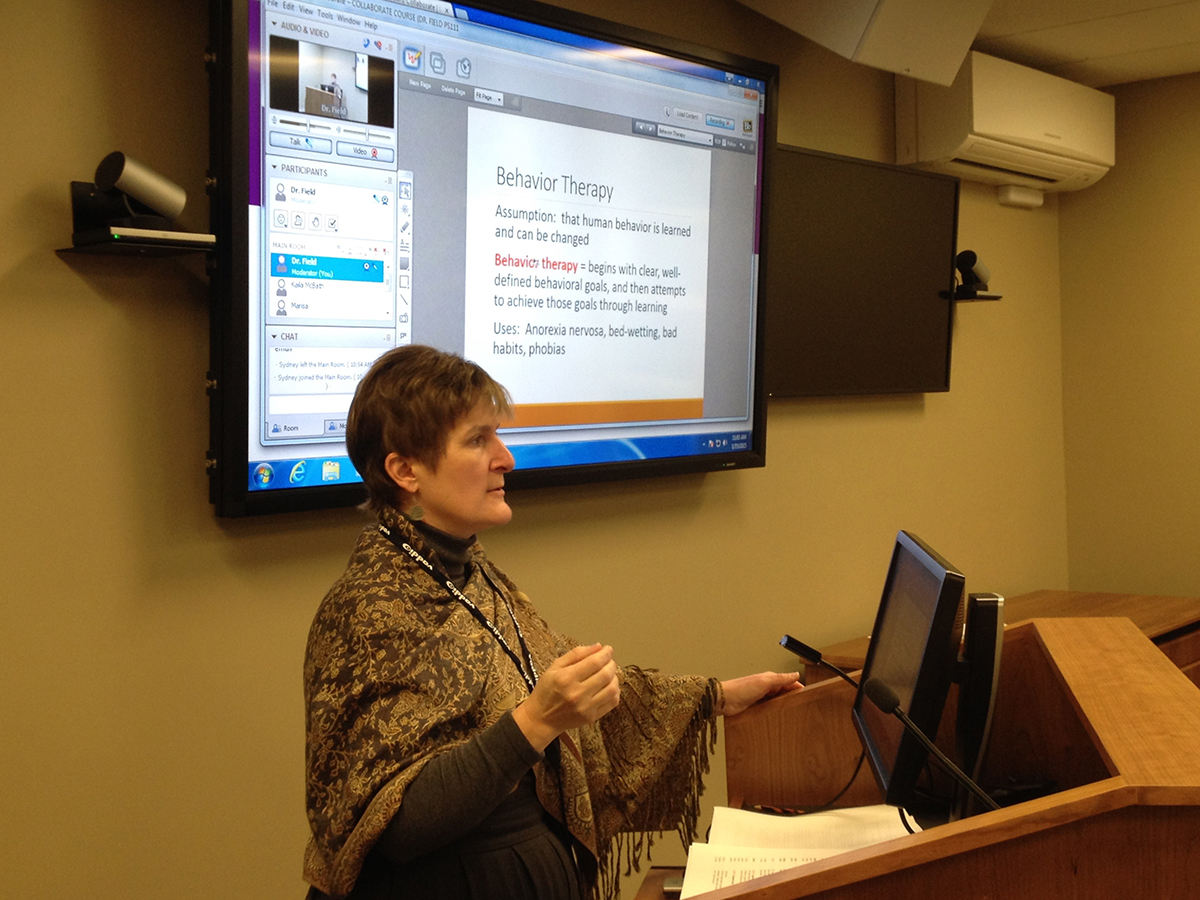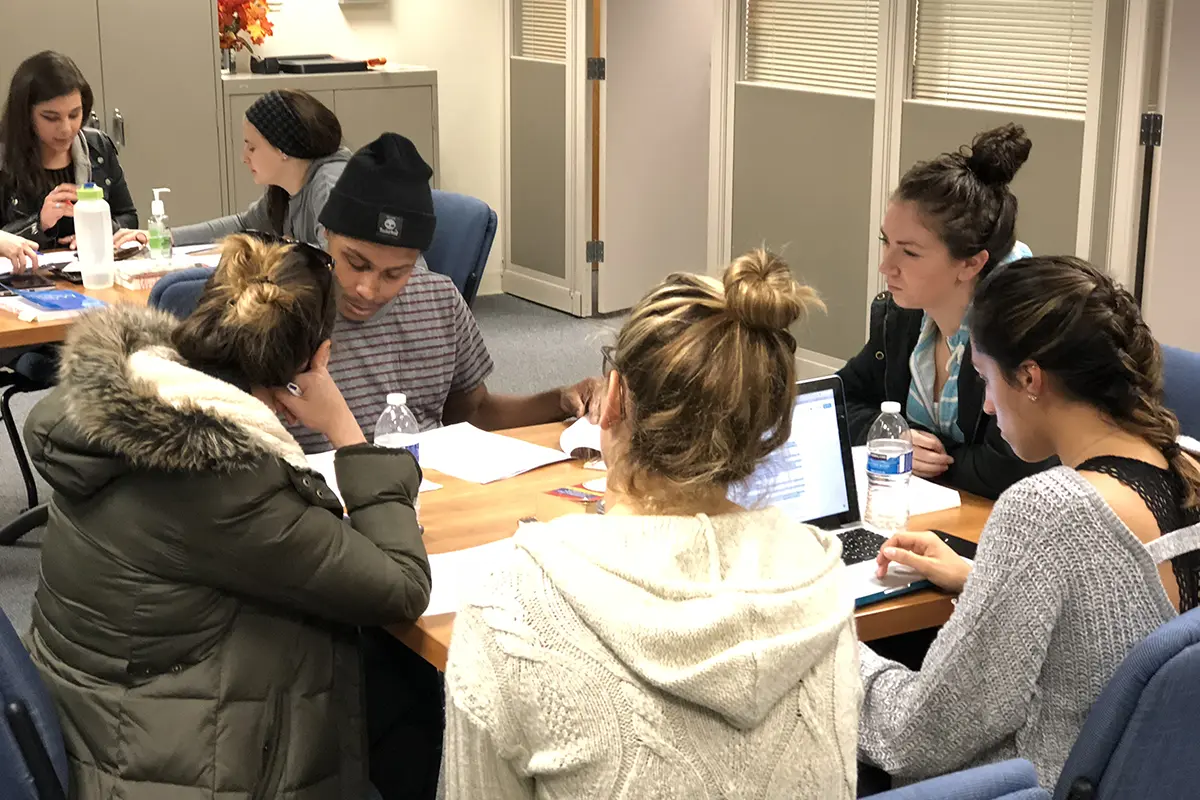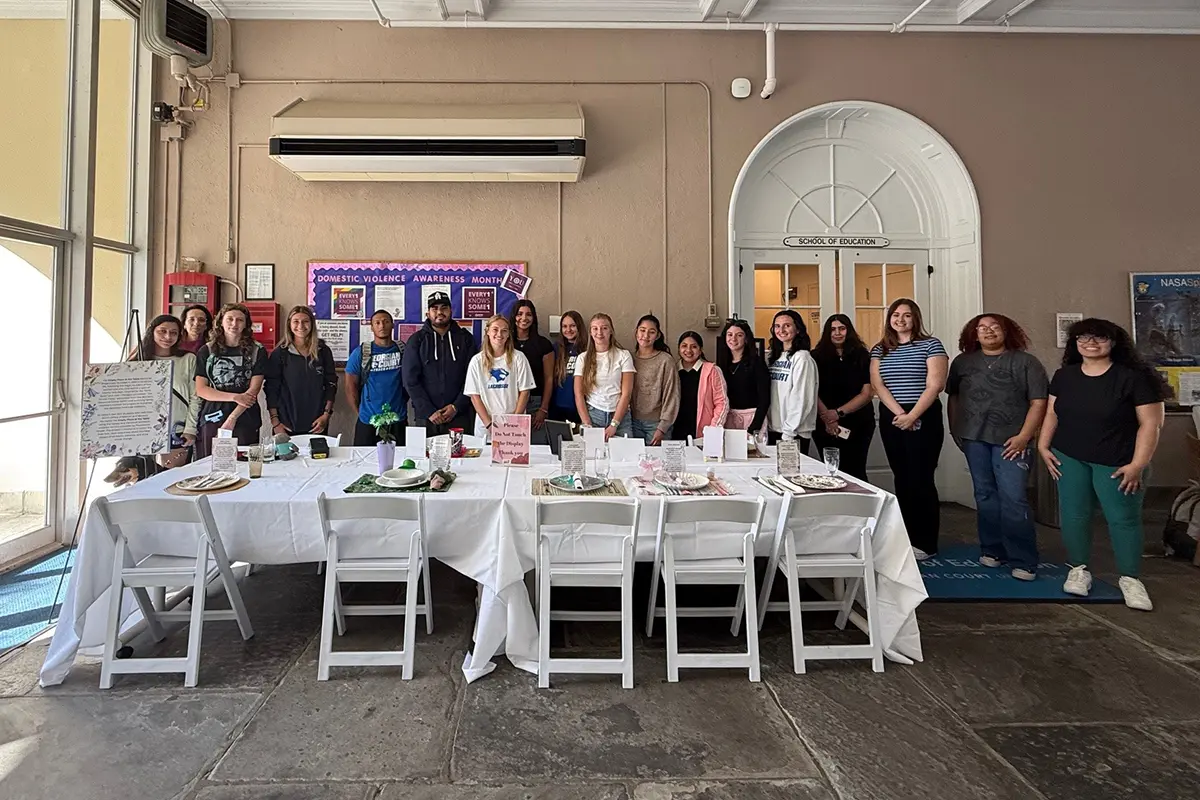Sue Field, Ph.D., a professor of psychology at Georgian Court University seen here teaching students in class and online, helped GCU pilot Chart the Course. The student retention program launched in December 2014 and recently won accolades from University Business magazine.
Georgian Court University is one of 17 colleges and universities nationwide honored by University Business magazine in its Winter 2015 Models of Excellence program. Sponsored by Higher One, a leading provider of financial services to college and university campuses across the country, the Models of Excellence program recognizes innovative approaches to encouraging and nurturing student success on campus.
“Georgian Court University demonstrates a good application of data in the creation of a system that motivates students to use school breaks to stay on pace with their peers,” says University Business senior editor Tim Goral. “The free price point and individualized assistance offered in the Chart the Course program adds to its appeal for students as well.”
While winter is considered a natural break between semesters, GCU leveraged the time off to keep freshmen connected to the institution and to their peers.
“Although using the break period to help students stay on track or make up for remedial required coursework is not a new idea, targeting students that are ‘off track’ at the conclusion of semester is a new approach to the model,” said Kathleen Boody, GCU dean for student success. “Most programs use summer bridges before the student even attends the university a full semester. Here we flipped it.”
Georgian Court administrators were concerned when they discovered that just over one-third of first-time freshmen in the Fall 2013 semester had earned 30 credits by the start of their second year. Academic research shows that students on track to graduate in four years typically have at least 30 credits their freshman year.
“We had a good number of freshmen taking non-credit, remedial courses that fell within their 15-hour course load but didn’t count toward their 15 credits that semester,” said Ms. Boody. To ensure freshmen from the Fall 2014 semester would fare better, Georgian Court offered a free 3-credit course during the winter or summer break to qualifying first-year students.
During GCU’s Chart the Course pilot program:
- Students who were not on track to complete 30 credits by the end of the 2014–2015 academic year could take Introduction to Psychology, Contemporary Economics, or U.S. History during winter or summer break at no charge. Courses were offered online for those who didn’t live near campus or in hybrid models—online plus in-person instruction.
- Instructors carefully constructed courses to take into account challenges faced by remedial students while a face-to-face pre-course orientation program allowed faculty, success coaches, and peer tutors to engage participants using online course sites and digital tools, including group texts and Google Hangouts. In addition, success coaches monitored student progress throughout the course period, sending reminders and following up as needed.
- While getting students enrolled in Chart the Course during their breaks was challenging, there was another hurdle: The finance team had to approve the tuition-free courses before the program could proceed. “Once we demonstrated that the program would pay for itself if we retained just one student into the next semester, we received approval,” said Ms. Boody.
- The retention rate for the 43 students in the first-year trial program was 86 percent, exceeding the overall university retention rate of 78 percent. The retention rate of 48 others who qualified for, but declined to participate in Chart the Course, was 48 percent. Due to its success, the program will continue in December 2015.
More information about GCU retention efforts, including Chart the Course and other programs, is available through the Office of the Provost at 732-987-2306.
About Models of Excellence
Launched in 2015, Models of Excellence is a national recognition program that honors colleges and universities that have implemented innovative, effective and inter-departmental initiatives that are bolstering student success. The program is sponsored by Higher One, which offers a wide array of technological services on campus, ranging from streamlining the institution’s performance analytics and financial aid refund processes to offering students innovative banking services, tuition payment plans and the basics of financial management. Higher One works closely with colleges and universities by allocating resources more efficiently to provide a higher quality of service and using data to impact success with a focus on empowering students.
About University Business
University Business is the leading publication for senior managers at colleges and universities throughout the United States, reaching 75,000 leaders who manage enrollment, technology, business, finance, facilities and academic affairs. More information is available at www.universitybusiness.com.
About Higher One
Higher One (NYSE: ONE) partners with colleges and universities to lower their administrative costs and to improve graduation rates. Higher One’s products and services support more than 1,900 schools and 13 million enrolled students. More information about Higher One can be found at www.higherone.com.








